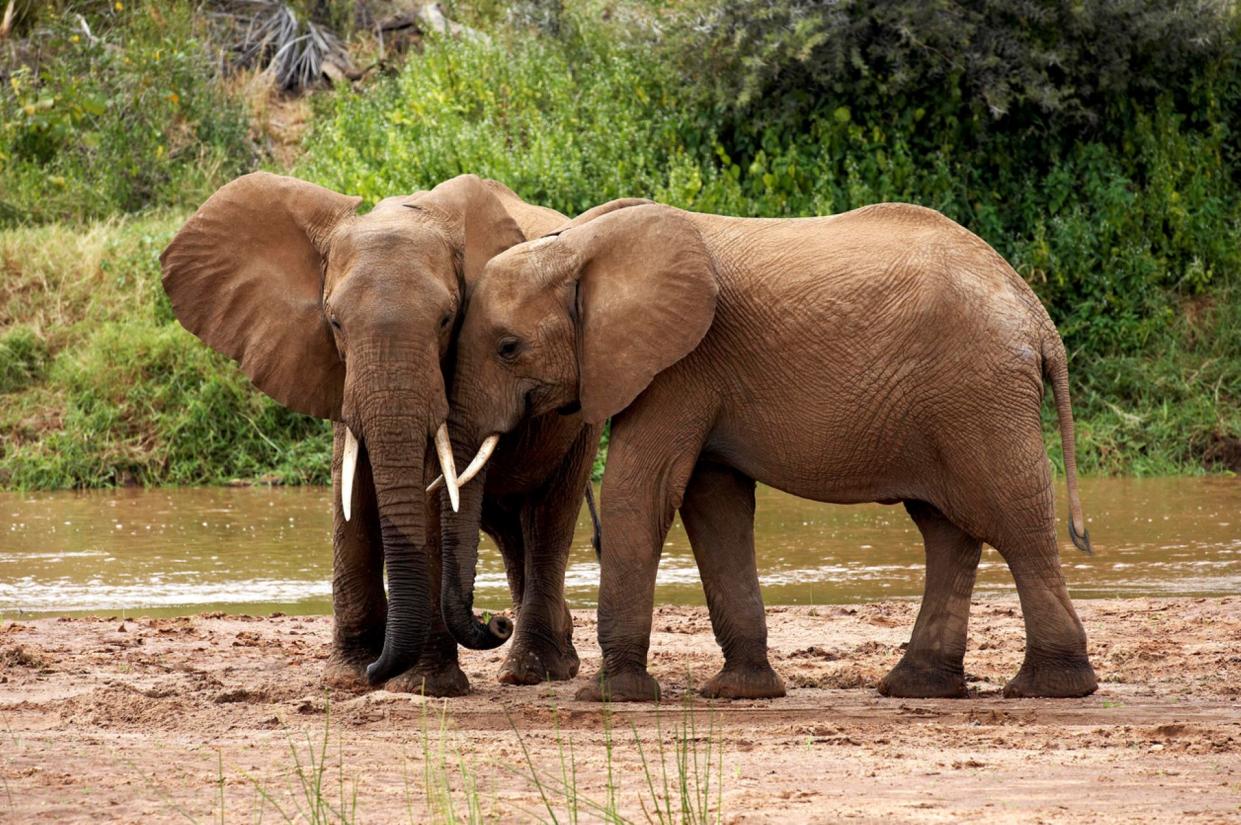Scientists issue warning after discovering silent killer bringing down elephants: ‘We may see other unexpected deaths’

Ask a class of kindergarteners what their favorite animal is — you’ll likely hear “elephant” more than once. Unfortunately, these gentle, family-oriented natives of the African savanna have fallen victim to a powerful bacteria — and our warming climate is exacerbating the threat.
What’s happening?
Over 350 young elephants mysteriously died in Zimbabwe in 2020 during a record-breaking heat wave.
In 2023, Dr. Chris Foggin, a wildlife veterinarian at the Victoria Falls Wildlife Trust, finally discovered the cause: a bacteria called Pasteurella, which lives in some elephants’ mouths. The extreme temperatures enabled the bacteria to enter the elephants’ blood, poisoning them.
Why is Pasteurella concerning?
Losing just one elephant is heartbreaking, let alone hundreds. These intelligent, empathetic animals form close-knit families and complex societies just like ours.
The African savanna elephants are endangered — only 350,000 remain, and the population declines by 8% every year. Dr. Arnoud van Vliet from the University of Surrey has a desire to extend this research; however, the lack of adequate funding poses a significant obstacle.
As global temperatures rise and heat waves intensify, harmless bacteria could turn deadly in other wildlife and even people. “There may be other animals where this could become a problem,” Van Vliet said. “If we don’t look for it, we won’t know whether it is there. If it is present in other wildlife, we may see other unexpected deaths.”
By better understanding the risks of Pasteurella, we can develop solutions to protect all species.
What’s being done to fight Pasteurella?
International scientists solved the mystery by testing samples from elephant carcasses. Now, vets in Zimbabwe can identify Pasteurella, allowing quicker responses in the future. Researchers also found genetic similarities between this outbreak and another affecting endangered antelope.
Further studies on Pasteurella could reveal the scale of the threat and how to mitigate it. But funding is urgently needed. Just as we support one another through tough times, humans must help species struggling with climate change impacts partly caused by us.
What can I do to help African savanna elephants?
Contact lawmakers to request conservation funding. Limit your carbon footprint to ease the stress on wildlife. Show children videos of elephants bonding and grieving to instill a reverence for our planet’s interconnectedness in future generations.
Most importantly, spread awareness to friends and family about the threats species face on every continent of our warming world. The more we understand the challenges animals face, the better we can address them together.
Join our free newsletter for weekly updates on the coolest innovations improving our lives and saving our planet.

